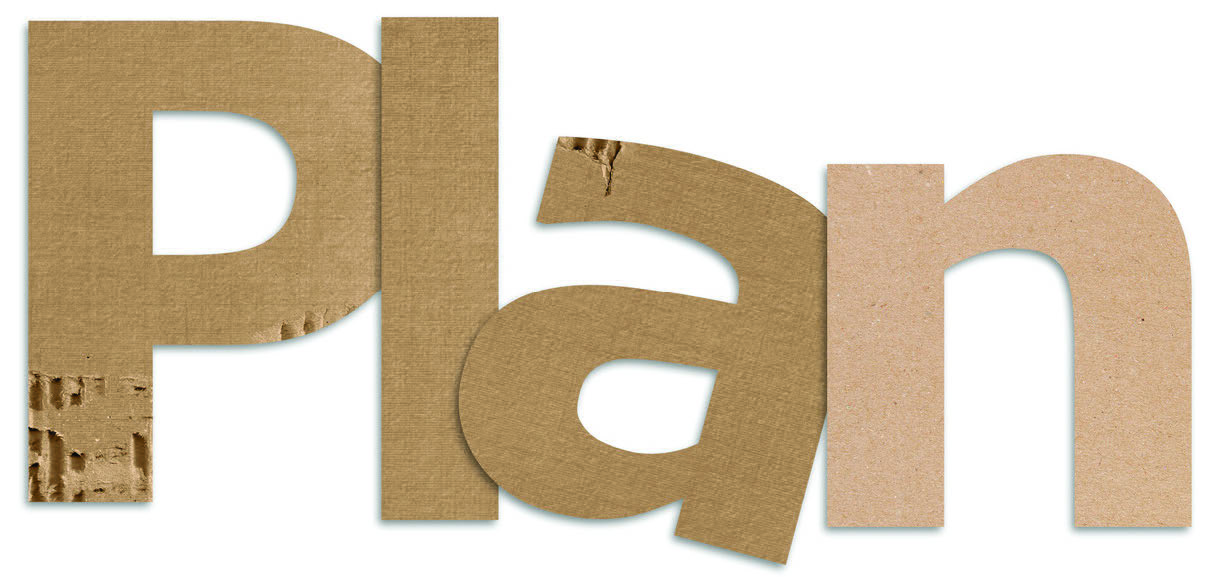


„Do what you love, you’ll never work a day in your life” – Confucius
A useful stage in self-discovery is taking notice of the famous Confucian saying, “If you do what you love, you will never have to work.” This maxim is making quite the career in recent years, and like with similar situations, the mass use of it distorts its meaning. Confucius knew what he was saying, but as we mentioned in the chapter on communication, it doesn’t mean he was understood. “The truth does not like being overanalyzed,” is something that is either accepted or not – meanwhile the truth in the words of Confucius everyone interprets individually; but if they don’t know themselves, then the basis on which they perceive their interpretation may be wrong due to being non relevant to them, leading to conclusions which bring about misunderstanding. As we understand, everything is tending to be in balance, will eventually lead to situations which will fix the mistakes, but do we really have the time to wait around for that to happen?
The theme of the path to our success holds great meaning for us – as we remind you, success is a journey, not a destination. In the interim, the second portion of the famous Confucian maxim, “never work,” when understood without deeper thought on the issue or understanding of mentoring terminology, is commonly associated with eternal resting and relaxation. Something like this – regardless of the mind’s tendency to yearn for exactly such a state – does not exist. Success is not the work of coincidence, but an effect resulting from an approach toward life. Which of us is certain that their approach is the right one? If we had such certainty, there would be no need for self-discovery. It is this self-discovery that causes us to take on the path, regardless of how long a road it is. In the time of Confucius, the idea of a road symbolized an unchanging and eternal value, which mediates between all things and simultaneously supports them. The Chinese philosopher whose contemplations remain true to this day is a man who in the East is referred to as a “man of the path.” The modern man of success is nothing more than this. Do we ever intend to halt our development, or will we accept this state in which every subsequent day we become better and nearer perfection than the previous? Such acceptation – like anything else – also requires effort.
Ignoring economic issues, work is measured in effort. It is a conscious action done to achieve a specified goal. Seeking ourselves – even though we are always ourselves – we learn to work for the sake of working. In such an understanding all work is a form of meditation. It requires the same thing as idle pretending to be Confucius, Buddha, the Dalai Lama, or Sangha Dogan – being consequent, concentration, consciousness, effort, and the management of that effort with the help of time, or discipline. Only discipline allows us to experience our true limitless potential. It also shows us, that effort is something natural. The mind is always active, and we perpetually want to continue to develop and give meaning to our life. Understanding the mind and getting to know yourself is the same thing, understanding reality. It becomes easier, the more consciously we form it. That which is most important in us, is not the amount on the bank account or our connections, just the ability to put effort in, to work, and work on ourselves.
Work is satisfying. Satisfied we can appreciate what we have, instead of thinking of what we could. In the time of Confucius, it was said, “When you are satisfied, you need nothing more.” There lurks here a certain trap, which is based on seeking satisfaction in immediate gratification, or living with the conviction that you can achieve great success at little to no cost. It’s the result of unconscious negative emotions, which we learn to recognize through self-development.
They are reinforced by a lack of experience (which will in greater or lesser degree always be with us), a claiming posture resulting from convictions that we deserve something, the tendency to find issues in our surroundings, and conditions and their resulting tendency to blame society for your mistakes. Keeping it short, they are traits (as we remember our reality is one of our traits) resulting from not understanding yourself or the rules of self-development. Their direct effect is the choice of occupation which will bring the greatest monetary gains, instead of one allowing for development and the realization of our dreams. We often forget, that what comes easy, has little value, and nothing happens on its own, everything must be developed, even bad habits. We regularly are trying to take a vacation from living – who doesn’t … ?

A sense of purpose excludes negative emotions, but too much concentrating on it will breed reluctance. It is better to concentrate on the details of the individual steps and only look to the horizon from time to time, to see if our destination is within sight. Nothing will get done on its own, so it is better to assume that it will take more hard work and have a serious approach, than to expect it to be easy and be disappointed. If our goal is self-discovery, things begin to look better and more positive.
Work is always tiring – a human is not a machine. It doesn’t matter if you’re a rock star, accountant, parking attendant, or bank manager. We can understand this via the physics formula for work, expressed as the product of power and path. Mental mobilization influences energy. But it looks quite different depending on if we are preparing for a weekend party or plow the driveway. It is an issue of responsibility. Working on ourselves, we assume responsibility for our lives. If we do not take up this difficulty, then we will live on reflex, and our work will support someone else’s dreams and goals, rather than our self-development. The side effect in the case of money is rather little when compared to what can be accomplished working for yourself in any field. As was once recalled by Robert Kiyosaki when speaking of his childhood – money is whatever we want it to be. They can really be everything – though they shouldn’t be the end goal, or at least not the only goal.
Each of us has our own view on this problem, so let’s agree that time spent after 1 O pm should be restricted to relaxation. Of course, there are times when we must work to the end, but self-respect demands rest. We all have two lives – the second begins when we understand we have only one. Here it is worth remembering the saying, “if there were no rest, God would not have blessed working.” Planning our workday, we also plan when we will rest. Unfortunately, this is only true when we work alone. Planning can be compared to hunting. If the hunter wishes to shoot a running rabbit, he does not aim at it, but where the rabbit is expected to be next. That is why we take up actions before we are ready, otherwise – if we wait – we will never be ready. It’s a different issue that new problems can’t be solved with old solutions, which is why people develop, starting from being a beginner. If it will get better or not, is dependent on the ability to keep a fresh mind characteristic of a beginner, and due to this every day is a new unique experience, and every calling a new lesson. For its implementation, we, of course, need the right conditions, which is why we begin to regulate not only our life but our future, through time management, or planning. Time management is not the same thing as everyday haste combined with complaining about the constant cycle of assignments, but rather concentrating on the present.
Just like the rays of the sun, when concentrated through a magnifying glass can manifest fire, so our attention projects how our past reflects on today and how it will influence the future. Everything we do has an effect – what problems we will be faced with tomorrow, is dependent on our emotions, motivation, and effort which we experience today. All we do develops and reinforces due to repetition, and it is irrelevant if it’s good or bad. Our concentrated attention on what is now helps choose, what will be good for us, and what can disturb our functioning or cause problems in relations. How can we learn this? Of course – inner–building. It’s not without reason we used the analogy of a magnifying glass. The process of increasing mental strength and reinforcing the consciousness, focuses all the factors of work on one simple action. As we recall – the action is consciousness of action, and by the conditioning of the mind, repetition reinforces the consciousness. If we purposely continually repeat an action to strengthen the consciousness, our mental power will grow. If we decide on this, then we are proceeding with a process which we have called inner-building for the purposes of this book.

The choice of inner-building strategy is the same thing as projection tests in psychology. After years of practice with a chosen effort, we look at it and begin to understand what aspects of our deep subconscious caused us to make these choices. Before this happens, we learn how to manage our time, patience, adequate reacting to situations; meanwhile gaining unique and applicable experience both professionally and in life.
We shouldn’t fear such a choice or the suitability of it. By nature, we love ourselves; we definitely don’t want to harm ourselves, so we can trust ourselves. Our thoughts are real because we are real, and our dreams hold great meaning for us. Due to harmony they also hold great meaning to the world in which we live, and so are worth making come true. If we are not doing what we love, we are at a loss, and so is the world and those closest to us. Having dreams is an indicator that we can further develop, and bringing even the smallest of them to reality makes us realize that the limits be-tween us and the moment they come true is entirely in our heads.

The shape of our dreams depends on the conditions in which we are functioning. When going with Confucius’s maxim, when we choose an occupation, our dreams will be reali-zed by way of the work we do and the assignments it presents us with. Every step leaves a mark which can at some point be analyzed. It’s a game we play with ourselves. Whatever fantasies in the game, the game is always play-ed over the same thing – state of consciousness.
Every goal is a state of consciousness, so consciousness of a goal means its achievement. Experience in the form of baggage of registered past states builds character and strengthens us so we can be OK with ourselves instead of pretending to be someone else; which happens when we are doing something we don’t like. Only when we are ourselves, are we truly hap-py? But happiness – as we stated a few chapters earlier – isn’t something you receive, but something you do.
When we are ourselves, and we are honest with ourselves, then there is no such thing as fatigue; fatigue meant in the commonly accepted meaning, or reluctance resulting in complaining. It is very likely, that when Confucius said, “If you do what you love, you will never have to work,” he was thinking of self-development.
From our perspective it is very possible be-cause what can be deduced from the previous paragraphs is, that work can replace inner–building – or, a professional occupation can simultaneously be self-developing. In the times of Confucius, the most popular strategy which could be compared to inner-building would be meditation, which is exactly what he practiced. He didn’t earn a living with it, but knew that all work at its core is a form of meditation, on the condition that you are yourself while doing it, are conscious of it, and like doing it.
To conclude this chapter let’s return for a moment to the commonly accepted and incorrect understanding of the maxim, “if you love what you do, you will never have to work.” Confucius, through the experience gained along the path of his practices, used this experience for solving his nation’s ills. He knew everyone has their own issues, passions, and prerogatives, so they don’t necessarily have to care what he loves. Evidence that we love what we do is the ability to help others through the experience gained from our passions. Knowing yourself eliminates egotistical tendencies.
The greater the scale of the problem we are trying to solve, the better it is for us and puts our work in a better light. What is the problem? A stage of development. It’s easier for us to deal with problems if we know their purpose. Even easier when we realize that we aren’t the only ones developing – this process touches each of us. Coming out of your reality into the outside world to bring help to another, completes our experiences. Only then can we say, that if we aren’t doing what we love, we are wasting our time. Just as we must be patient, to learn patience, so to learn to work me must – work. To do something, you must just do it. Hands–on learning have the best effects.







